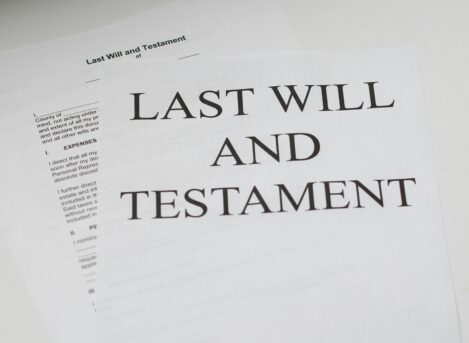A will is commonly drafted in a lawyer’s office in the presence of witnesses and a notary public. However, this scene is slowly changing with the rising popularity of electronic wills (e-wills). Before you choose to use an e-will, it’s important to learn their advantages and disadvantages.
States that allow e-wills
As of this writing, there are four states that permit e-wills by statute (Nevada, Florida, Indiana and Arizona), and another two (Utah and Colorado) that are considering doing so. In addition, the Uniform Law Commission (ULC) has issued the Uniform Electronic Wills Act (E-Wills Act).
The ULC isn’t a legislative body. It’s a nonprofit organization that “provides states with nonpartisan, well-conceived and well-drafted legislation that brings clarity and stability to critical areas of state statutory law.” A uniform law doesn’t apply in a given state unless the state adopts it, and lawmakers are free to modify the law’s language as they see fit.
Understanding the E-Wills Act
The E-Wills Act is designed to allow participants in the estate planning process (lawyers, clients, witnesses, notaries) to create, transfer, sign, and record wills and other documents in electronic form, while preserving traditional protections against undue influence and fraud.
Although the rules will vary from state to state, the E-Wills Act contemplates that any requirement that witnesses be in the physical presence of the client will be supplemented by an “electronic presence” option. The act defines electronic presence as “the relationship of two or more individuals in different locations communicating in real time to the same extent as if the individuals were physically present in the same location.”
What are the pluses and minuses?
E-wills offer several significant advantages, including:
Convenience
People who are elderly or have health problems that make it difficult to travel can review and execute wills and other estate planning documents from the comfort of their homes, without the need to send paper documents back and forth. Similarly, people who live in rural areas, or otherwise lack easy physical access to lawyers, notaries and witnesses, can execute these documents in a matter of minutes rather than hours or days.
Encouragement of estate planning
Millennials and other young people are accustomed to the speed and convenience of online transactions, so the availability of e-wills may encourage them to plan their estates earlier than they would otherwise.
Security
E-will laws that incorporate fingerprint scanning (or other identity verification procedures), archived video recordings and other security features provide some protection against fraud and abuse.
Potential disadvantages include:
Uncertainty
Will states without e-will laws recognize e-wills that were executed in other states?
Cybersecurity issues
As with any type of online transaction, hacking and identity theft is a concern, so it’ll be critical for vendors that provide e-will services to incorporate robust security features into their offerings.
Susceptibility to fraud and undue influence
Some have expressed concern that e-wills will be more susceptible to challenges based on fraud or undue influence. But others believe that these concerns generally revolve around the possibility that people will execute e-wills without involving an attorney.
The first disadvantage — uncertainty over whether e-wills will be recognized by other states — is particularly relevant if you execute an e-will in a state that allows it, but later move to another state that does not. Although the E-Wills Act contemplates that the second state would give effect to the e-will under the laws of the first state, some states may not be so inclined.
Seek professional advice
It’s sometimes hard to break tradition and embrace new technology, but using an e-will can offer great convenience. Before taking any action, though, discuss with your attorney whether an e-will makes sense for your situation.






